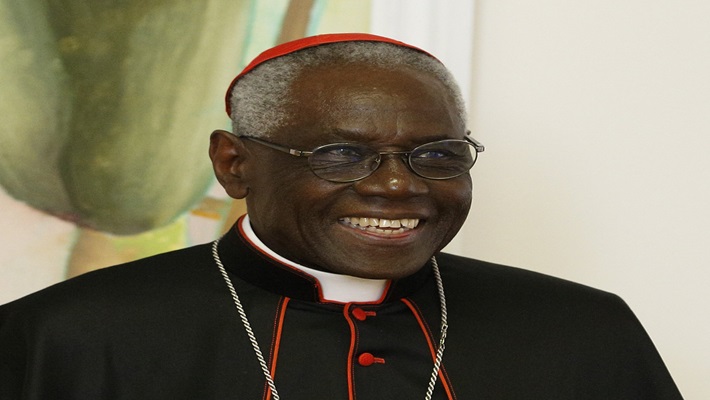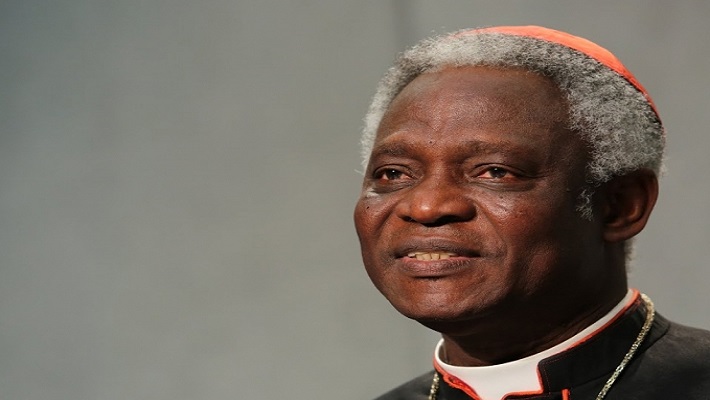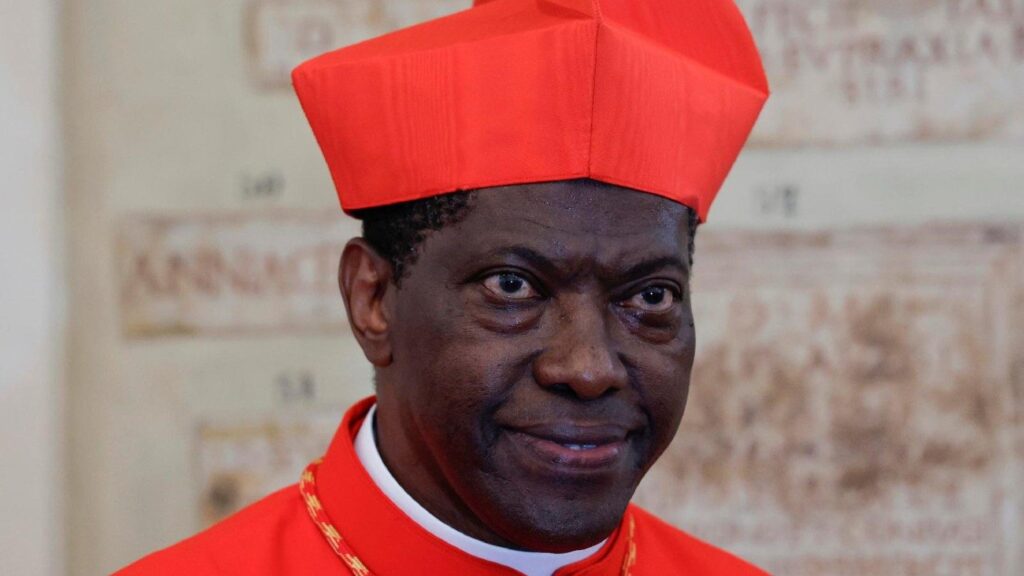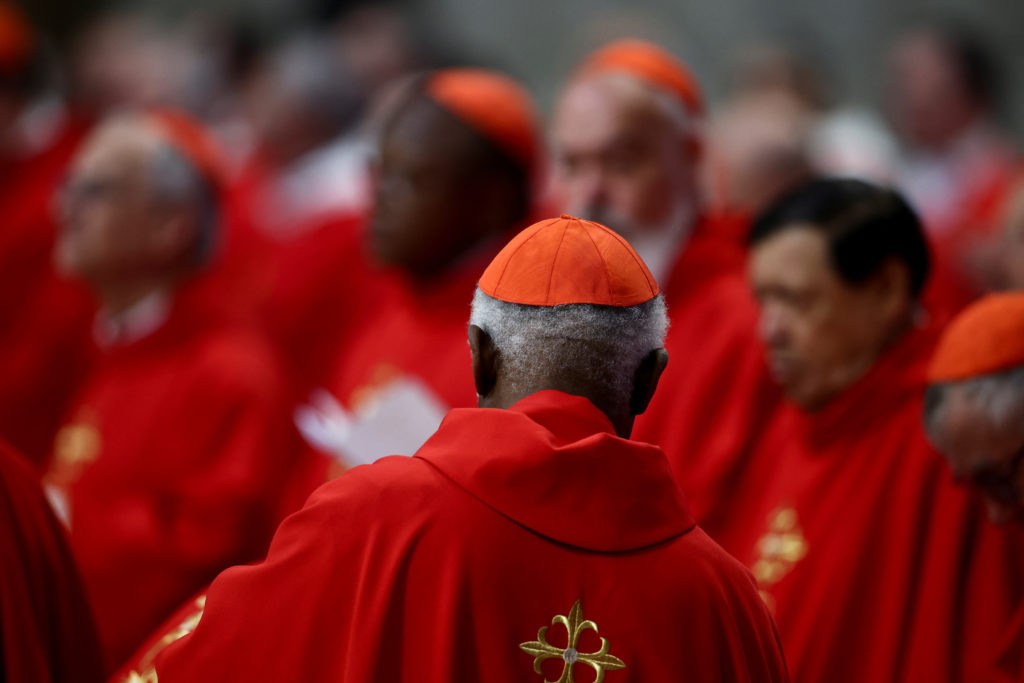By Paschal Norbert
NAIROBI, MAY 2, 2025 (CISA) – As the Catholic Church approaches the conclave set to begin on May 7, 2025, the possibility of electing an African pope has garnered significant attention. With 18 African cardinal electors participating, the continent’s influence in the Church is more pronounced than ever. This shift reflects the growing Catholic population in Africa, which has risen from 176 million to 281 million during Pope Francis’s 12-year papacy, which is about a fifth of the continent’s population.

Cardinal Robert Sarah (Guinea)
Born in 1945 in Ourous, Guinea, Cardinal Robert Sarah has been a prominent figure in the Catholic Church for decades. Ordained in 1969, he became the youngest bishop in the world at age 34 when appointed Archbishop of Conakry in 1979. His Vatican service includes roles as Secretary of the Congregation for the Evangelization of Peoples and President of the Pontifical Council “Cor Unum.” In 2014, Pope Francis appointed him Prefect of the Congregation for Divine Worship and the Discipline of the Sacraments, a position he held until 2021.
Cardinal Sarah is known for his conservative theological stance, emphasizing traditional liturgy and moral teachings. He has been a vocal critic of what he perceives as moral relativism and has called for a return to reverent worship practices. His deep understanding of Vatican operations and his commitment to doctrinal purity make him a significant figure in the upcoming conclave.

Cardinal Peter Turkson (Ghana)
Cardinal Peter Turkson, born in 1948 in Ghana, has been a leading voice in the Church on social justice and environmental issues. He served as President of the Pontifical Council for Justice and Peace and later as Prefect of the Dicastery for Promoting Integral Human Development. Currently, he holds the position of Chancellor of the Pontifical Academies of Sciences and Social Sciences.
Turkson’s ideology aligns with many of Pope Francis’s progressive views, focusing on issues like poverty alleviation, environmental stewardship, and economic justice. His extensive experience within the Vatican and his diplomatic skills position him as a bridge between different factions within the Church.

(Democratic Republic of Congo)
Born in 1959, Cardinal Fridolin Ambongo Besungu is the Archbishop of Kinshasa and serves as President of the Symposium of Episcopal Conferences of Africa and Madagascar (SECAM). He was also a member of Pope Francis’s Council of Cardinals, advising on Church governance.
Ambongo is known for his conservative stance on social issues. He notably opposed the Vatican’s declaration allowing blessings of same-sex unions, securing an exemption for African churches. His leadership during regional crises, such as the Ebola outbreak, demonstrates his capability in both pastoral care and institutional governance.
Cardinal Protase Rugambwa (Tanzania)

Born on May 31, 1960, in Bunena, Tanzania, Cardinal Protase Rugambwa is the third cardinal in Tanzania’s history, following Cardinals Laurean Rugambwa and Polycarp Pengo. Ordained a priest in 1990 by Pope John Paul II, Rugambwa has held various positions within the Church, including Bishop of Kigoma, Adjunct Secretary and later Secretary of the Congregation for the Evangelization of Peoples.
In 2023, he was appointed Metropolitan Archbishop of Tabora and was elevated to the College of Cardinals by Pope Francis. His extensive experience within the Vatican and his commitment to doctrinal purity make him a significant figure in the upcoming conclave.
Historical Context: African Popes
The Catholic Church has seen three popes believed to be of African origin in its early history:
- Pope Victor I (reigned c. 189–199): Born in the Roman province of Africa, likely in present-day Libya or Tunisia, he was the first pope to celebrate Mass in Latin.
- Pope Miltiades (reigned 311–314): Also from North Africa, he served during Emperor Constantine’s reign and witnessed the legalization of Christianity. It was during his pontificate that Emperor Constantine the Great issued the Edict of Milan, giving Christianity legal status within the Roman Empire.
- Pope Gelasius I (reigned 492–496): Of African descent, he emphasized the spiritual authority of the Church over secular rulers.
These early African popes, mostly from Northern Africa, highlight the continent’s historical significance in the Church’s development.
As the Church stands at a crossroads, the election of an African pope could symbolize a return to its diverse roots and acknowledge the growing importance of the African faithful in shaping its future.
African Cardinal Electors
In the upcoming conclave, there are 18 African cardinal electors eligible to participate, reflecting the growing influence of the African Church. However, Cardinal John Njue from Kenya has announced that he will not attend the conclave, reducing the number of participating African electors to 17.
The prominence of African cardinals in the 2025 conclave underscores the continent’s increasing role in shaping the future of the Catholic Church. While the election of an African pope remains uncertain, the leadership and perspectives of these cardinals could significantly influence the direction of Catholicism in a rapidly changing world.
